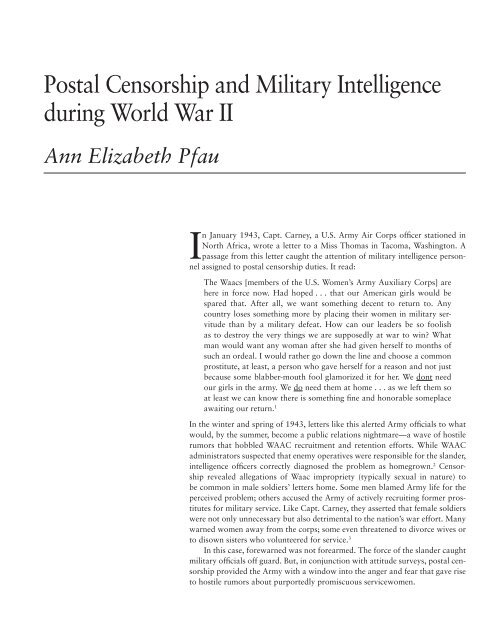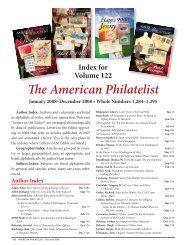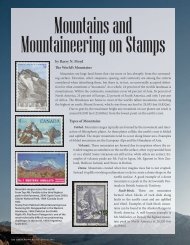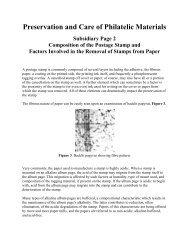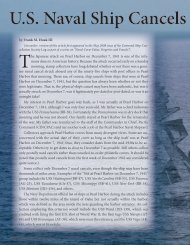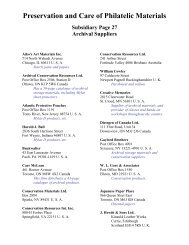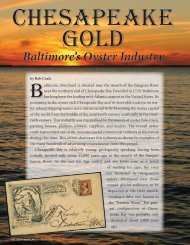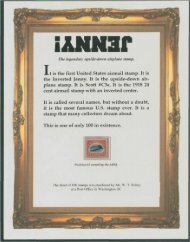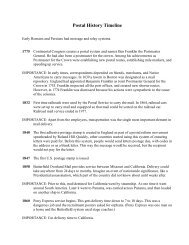The Winton M. Blount Postal History Symposia - Smithsonian ...
The Winton M. Blount Postal History Symposia - Smithsonian ...
The Winton M. Blount Postal History Symposia - Smithsonian ...
- No tags were found...
Create successful ePaper yourself
Turn your PDF publications into a flip-book with our unique Google optimized e-Paper software.
<strong>Postal</strong> Censorship and Military Intelligenceduring World War IIAnn Elizabeth PfauIn January 1943, Capt. Carney, a U.S. Army Air Corps officer stationed inNorth Africa, wrote a letter to a Miss Thomas in Tacoma, Washington. Apassage from this letter caught the attention of military intelligence personnelassigned to postal censorship duties. It read:<strong>The</strong> Waacs [members of the U.S. Women’s Army Auxiliary Corps] arehere in force now. Had hoped . . . that our American girls would bespared that. After all, we want something decent to return to. Anycountry loses something more by placing their women in military servitudethan by a military defeat. How can our leaders be so foolishas to destroy the very things we are supposedly at war to win? Whatman would want any woman after she had given herself to months ofsuch an ordeal. I would rather go down the line and choose a commonprostitute, at least, a person who gave herself for a reason and not justbecause some blabber- mouth fool glamorized it for her. We dont needour girls in the army. We do need them at home . . . as we left them soat least we can know there is something fine and honorable someplaceawaiting our return. 1In the winter and spring of 1943, letters like this alerted Army officials to whatwould, by the summer, become a public relations nightmare—a wave of hostilerumors that hobbled WAAC recruitment and retention efforts. While WAACadministrators suspected that enemy operatives were responsible for the slander,intelligence officers correctly diagnosed the problem as homegrown. 2 Censorshiprevealed allegations of Waac impropriety (typically sexual in nature) tobe common in male soldiers’ letters home. Some men blamed Army life for theperceived problem; others accused the Army of actively recruiting former prostitutesfor military service. Like Capt. Carney, they asserted that female soldierswere not only unnecessary but also detrimental to the nation’s war effort. Manywarned women away from the corps; some even threatened to divorce wives orto disown sisters who volunteered for service. 3In this case, forewarned was not forearmed. <strong>The</strong> force of the slander caughtmilitary officials off guard. But, in conjunction with attitude surveys, postal censorshipprovided the Army with a window into the anger and fear that gave riseto hostile rumors about purportedly promiscuous servicewomen.


